Designing for the Future: Ensuring NCC 2025 Electrification Readiness and Minimising Retrofitting Costs

As Australia strides toward a sustainable, energy-efficient future, the proposed updates to the National Construction Code (NCC) 2025 signal a transformative shift in building design, with a strong emphasis on electrification and energy efficiency. For builders & developers, architects, government bodies, property investors, and civilians, understanding these changes is essential to create buildings that are future-ready, cost-effective, and compliant with Australia’s net-zero carbon emissions target by 2050. At Decobu, we provide expert Electrical Engineering Services, Mechanical Engineering Services, Hydraulic Engineering Services, and Fire Engineering Services across Sydney, Melbourne, Brisbane, Adelaide, and Perth, helping you navigate these evolving standards seamlessly.
This blog explores the proposed NCC 2025 changes, offers strategies to design for electrification readiness, and demonstrates how Decobu can help you minimize retrofitting costs. We also address a recent client question to provide practical insights for your projects.
The Proposed NCC 2025: A Shift Toward Electrification
The draft of NCC 2025, released for public comment in May 2024, outlines significant changes to support Australia’s transition to a low-carbon future. While the final version is delayed beyond the typical May 2025 release, the proposed amendments indicate a clear direction toward electrification, renewable energy integration, and enhanced energy efficiency. These changes aim to reduce the 19% of Australia’s energy use and 18% of direct carbon emissions attributed to buildings, as noted by the Department of Climate Change, Energy, the Environment and Water.
Key Proposed Changes
The NCC 2025 draft includes several provisions to promote electrification and sustainability:
- EV Charging Infrastructure: New residential (Class 1 and 2) and commercial (Class 3, 5-9) buildings must include dedicated circuits and pre-provisioning for EV charging, supporting at least one parking space per unit or designated area.
- Solar Panel Requirements: Class 3-9 buildings are required to cover 100% of feasible roof space with photovoltaic (PV) systems to maximize renewable energy generation.
- Increased Switchboard Capacity: New homes must reserve spare circuit breaker slots (e.g., eight single-phase slots for gas-using homes) to accommodate future electrification needs, reducing retrofitting costs.
- Enhanced Insulation: Stricter Deemed-to-Satisfy (DTS) provisions improve thermal performance for walls, roofs, and floors, minimizing energy loss.
- All-Electric Systems: Support for transitioning from gas to electric systems for heating, cooling, and hot water, including centralized electric hot water systems for Class 2 buildings.
These changes, while still under review, reflect Australia’s commitment to net-zero emissions and require proactive planning to ensure compliance without costly modifications later.
Strategies to Minimize Retrofitting Costs
Retrofitting existing buildings to meet electrification standards can be expensive and disruptive. By designing with the proposed NCC 2025 changes in mind, you can future-proof your projects and save significantly. Here are five strategies, leveraging Decobu’s expertise:
1. Plan Scalable Electrical Systems
Engaging electrical engineering consultants near me early ensures your building’s electrical infrastructure can handle increased loads from electric appliances, EV chargers, and renewable energy systems. Decobu’s Electrical Engineering Services Sydney and Electrical Engineering Services Melbourne design switchboards with spare capacity and additional circuits, avoiding the need for costly rewiring. For example, reserving eight spare circuit breaker slots, as proposed in the NCC 2025 draft, prepares homes for future electrification.
2. Incorporate Renewable Energy
Installing solar panels and battery storage during initial construction is more cost-effective than retrofitting. Decobu’s Mechanical Engineering Services Brisbane and Mechanical Engineering Services Adelaide design energy-efficient HVAC systems that integrate with PV systems, aligning with the NCC 2025’s solar panel mandates. Modular designs allow for easy expansion as technology advances, ensuring long-term compliance.
3. Design Flexible Hydraulic Systems
Transitioning to electric hot water systems requires compatible plumbing. Decobu’s Hydraulic Engineering Services Perth and Hydraulic Engineering Services Melbourne create modular piping systems that adapt to electric water heaters or heat pumps, minimizing future modifications. This aligns with the NCC 2025’s recognition of centralized electric hot water systems as a viable alternative (HIA).
4. Enhance Fire Safety
Increased electrical loads raise fire safety concerns. Decobu’s Fire Engineering Services Melbourne and Fire Engineering Services Brisbane design fire suppression systems and fire-rated cabling to meet the NCC 2025’s proposed car park fire safety improvements, such as sprinklers for spaces with over 40 cars (MBC Group). Early integration avoids costly retrofits.
5. Partner with Multi-Disciplinary Experts
Collaborating with engineering consulting companies like Decobu, which offers integrated Electrical Engineering Services Australia, Mechanical Engineering Services Australia, Hydraulic Engineering Services Australia, and Fire Engineering Services Australia, streamlines compliance. Our cohesive approach ensures all systems work together to meet proposed standards, saving time and resources.
Addressing Stakeholder Needs
- Builders & Developers: Decobu’s expertise ensures projects are market-competitive, with scalable systems that reduce future costs.
- Architects: Our mechanical engineering consulting supports sustainable design, aligning aesthetics with functionality.
- Government Bodies: We help public projects comply with proposed standards, contributing to Australia’s net-zero goals.
- Property Investors: Energy-efficient buildings designed by Decobu offer higher returns and tenant appeal.
Civilians: Homeowners benefit from reduced utility costs and enhanced comfort in electrification-ready homes.
Recent Client Question: Answered
Question from TG: “How can we ensure our new residential development in Melbourne is prepared for the proposed NCC 2025 changes without significantly increasing our budget?”
Answer: To prepare your Melbourne residential development for the proposed NCC 2025 changes cost-effectively, prioritize scalable solutions. For electrification, install conduits for future EV charging stations and reserve switchboard space for additional circuits, as recommended by Decobu’s Electrical Engineering Services Melbourne. For renewable energy, design roof structures to support solar panels, deferring installation if budget-constrained. Decobu’s Mechanical Engineering Services Melbourne can optimize HVAC systems for energy efficiency, while Hydraulic Engineering Services Melbourne ensures plumbing supports electric water heaters. These strategies, implemented early, minimize upfront costs while ensuring future compliance, saving thousands in retrofitting expenses.
Why Choose Decobu?
Decobu is your trusted partner for navigating the complexities of the proposed NCC 2025 changes. Our team of electrical design engineer companies, mechanical engineering companies Sydney, fire engineering consultants Melbourne, and hydraulic engineers Perth delivers innovative, sustainable solutions tailored to your needs. Operating across Sydney, Melbourne, Brisbane, Adelaide, and Perth, we combine local expertise with a national perspective to ensure your projects are future-ready.
Our multi-disciplinary approach integrates Electrical Engineering Companies Australia, Mechanical Engineering Firms Australia, and Mechanical Engineering Consultancies Australia, providing a one-stop solution for compliance and efficiency. Whether you’re developing a residential complex, commercial building, or public infrastructure, Decobu ensures your project meets the highest standards of safety, sustainability, and performance.
Conclusion
While the final NCC 2025 is still under review, its proposed changes signal a clear move toward electrification and energy efficiency. By designing with these standards in mind, you can avoid costly retrofits, enhance market appeal, and contribute to Australia’s sustainability goals. Partner with Decobu to leverage our Electrical Engineering Services, Mechanical Engineering Services, Hydraulic Engineering Services, and Fire Engineering Services across Australia. Contact us today to start building a future-ready project that stands the test of time.
Found Interesting? Share the insights
Related Posts
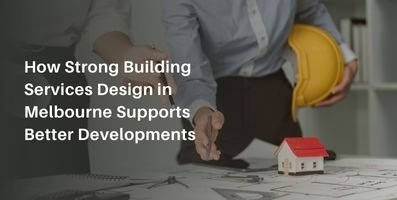
How Strong Building Services Design in Melbourne Supports Better Developments
How Strong Building Services Design in Melbourne Supports Better Developments As building services design engineers in Melbourne, we see the same pattern repeatedly: projects that
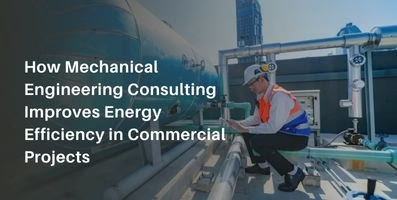
How Mechanical Engineering Consulting Improves Energy Efficiency in Commercial Projects
How Mechanical Engineering Consulting Improves Energy Efficiency in Commercial Projects Commercial buildings across Australia face increasing pressure to reduce energy use while keeping occupants safe

Why Every Commercial Project Needs an Experienced Electrical Design Engineer
Why Every Commercial Project Needs an Experienced Electrical Design Engineer Electrical design is one of the most influential parts of any commercial development yet it’s
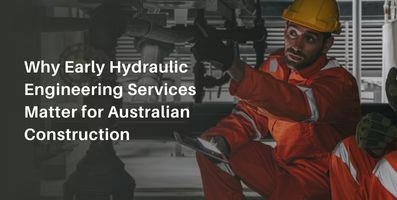
Why Early Hydraulic Engineering Services Matter for Australian Construction
Why Early Hydraulic Engineering Services Matter for Australian Construction Hydraulic systems sit at the core of every building — managing water supply, drainage, stormwater, gas,
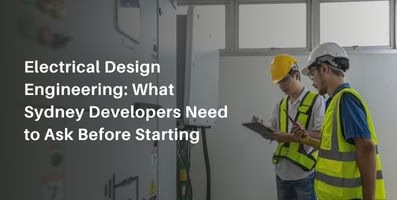
Electrical Design Engineering: What Sydney Developers Need to Ask Before Starting
Electrical Design Engineering: What Sydney Developers Need to Ask Before Starting Electrical design plays a much bigger role in modern buildings than many developers realise.
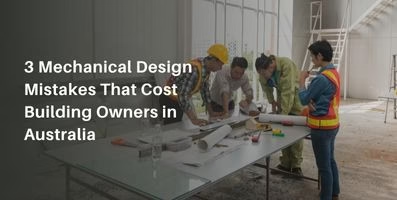
3 Mechanical Design Mistakes That Cost Building Owners in Australia
3 Mechanical Design Mistakes That Cost Building Owners in Australia Mechanical design isn’t usually the first thing people think about when planning a building —

